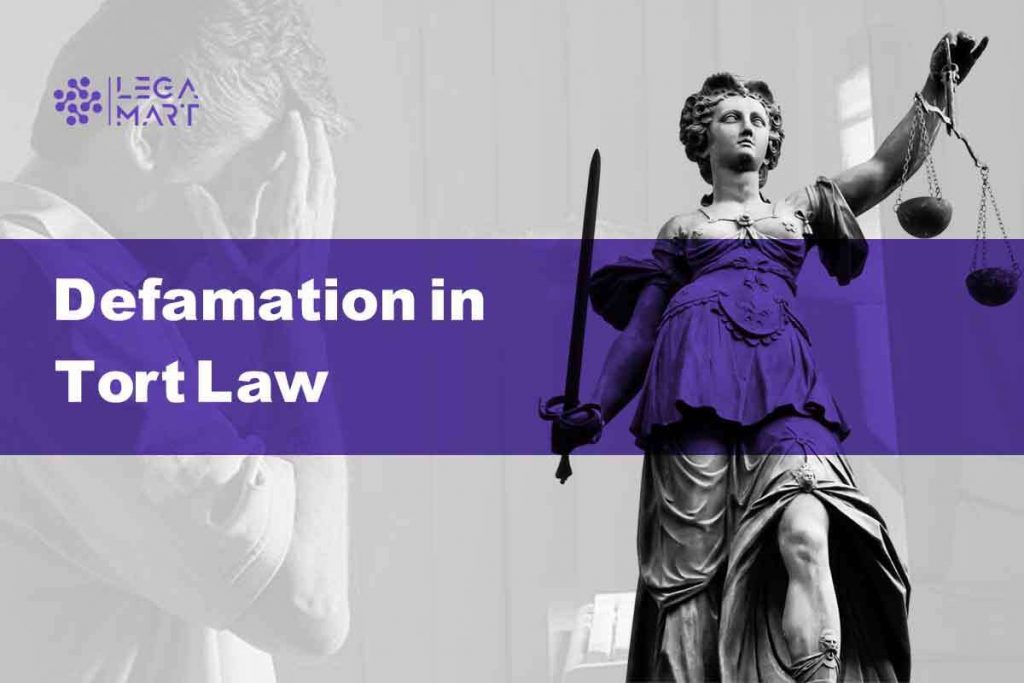Introduction
Defamation is a tort involving making a false statement that harms an individual’s reputation. It can be in the form of a spoken (slander) or written (libel) statement communicated to a third party. To constitute defamation, the statement must be false and cause harm to the reputation of the person or entity it is about. The tort of defamation aims to protect individuals and entities from false and damaging statements made by others.
How defamation relates to tort law?
Defamation is a type of tort that falls under the broader category of civil law. A tort is a wrongful act that causes harm to another person or their property, and for which the injured party can seek compensation. In the case of defamation, the harm is caused by the false statement made by the defendant, which damages the reputation of the plaintiff.
Tort law provides a legal framework for individuals or entities to seek redress for harm caused by another’s wrongful acts. Defamation is one of the many types of torts that can be committed, and it carries legal consequences for the person who made the false statements. The plaintiff in a defamation case can seek monetary damages and other forms of relief, such as an injunction, to stop the defendant from making further false statements.
One high-profile example of defamation involving Amber Heard is the legal battle with her ex-husband Johnny Depp. In 2018, Heard wrote an op-ed in the Washington Post in which she discussed being a victim of domestic violence. Though Depp was not named in the op-ed, he later filed a defamation lawsuit against Heard, claiming that the op-ed implied that he was a domestic abuser.
Elements of Defamation in tort law
The elements of defamation in tort law are the key components that must be present for a false statement to qualify as defamation. In general, there are five elements that must be present for a statement to be considered defamatory:
- False Statement of Fact: The statement must be a false statement of fact, not an opinion. Opinions cannot be defamatory because they are subjective and cannot be proven true or false.
- Publication to a Third Party: The false statement must be communicated to anyone other than the plaintiff. The publication can occur through various means, including spoken words, written words, or broadcast media.
- Harm to Reputation: The false statement must harm the reputation of the plaintiff. This harm can take many forms, such as damage to the plaintiff’s personal or professional reputation, loss of business or income, or emotional distress.
- Falsity of Statement: The statement must be objectively false and not just a difference of opinion. The plaintiff must be able to prove that the statement was false and made with knowledge of its falsity or with reckless disregard for the truth.
- Negligence or Intent on the part of Defendant: The defendant must have acted with either negligence or intent. If the defendant acted with intent, they knew the statement was false and intended to cause harm. If the defendant acted with negligence, they made the statement without taking reasonable care to determine its truth or falsity.
Defences to defamation in tort law
There are several defences available to defendants in a defamation case. These defences aim to protect individuals who may have made a false statement that, while harmful to the plaintiff’s reputation, was made in good faith or with other legitimate reasons. Some common defences to defamation in tort law include:
- Truth as a Defense: The defendant can argue that the statement made was true and, therefore cannot be considered defamatory. The burden of proof is on the defendant to show that the statement was true.
- Privilege and Immunity: Certain statements made in the course of official duties, legal proceedings, or in the public interest may be protected by privilege or immunity. For example, a witness in a court case is generally immune from liability for statements made during testimony.
- Opinion as a Defense: Statements of opinion, rather than fact, are not defamatory. If the statement can be reasonably interpreted as an opinion rather than a statement of fact, it may not be actionable.
- Consent as a Defense: If the plaintiff gave consent to the publication of the statement or impliedly consented to its publication through their actions or words, the defendant may be able to argue that there was no defamation.
Conclusion
Defamation is a serious matter that can have damaging consequences for individuals or entities. It is a tort that falls under the broader category of civil law, providing a legal framework for plaintiffs to seek redress for harm caused by another’s wrongful acts.
The plaintiff can seek monetary damages and other forms of relief, such as an injunction. Defendants may have several defences available, such as truth, privilege and immunity, opinion, or consent. It is important to understand the elements of defamation and the available defences to properly evaluate and address any potential harm caused by false statements.




